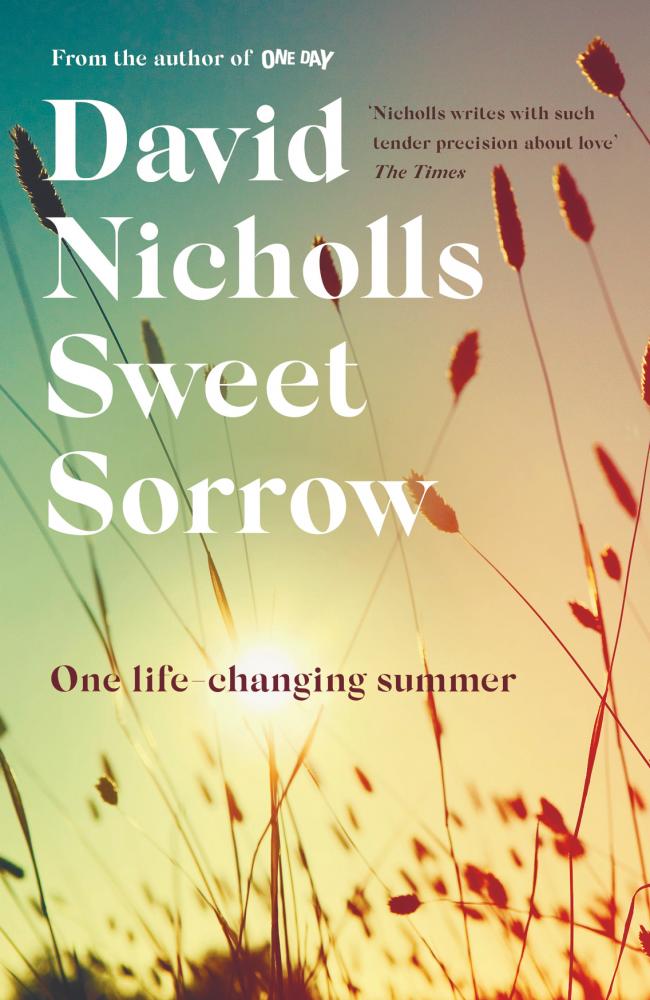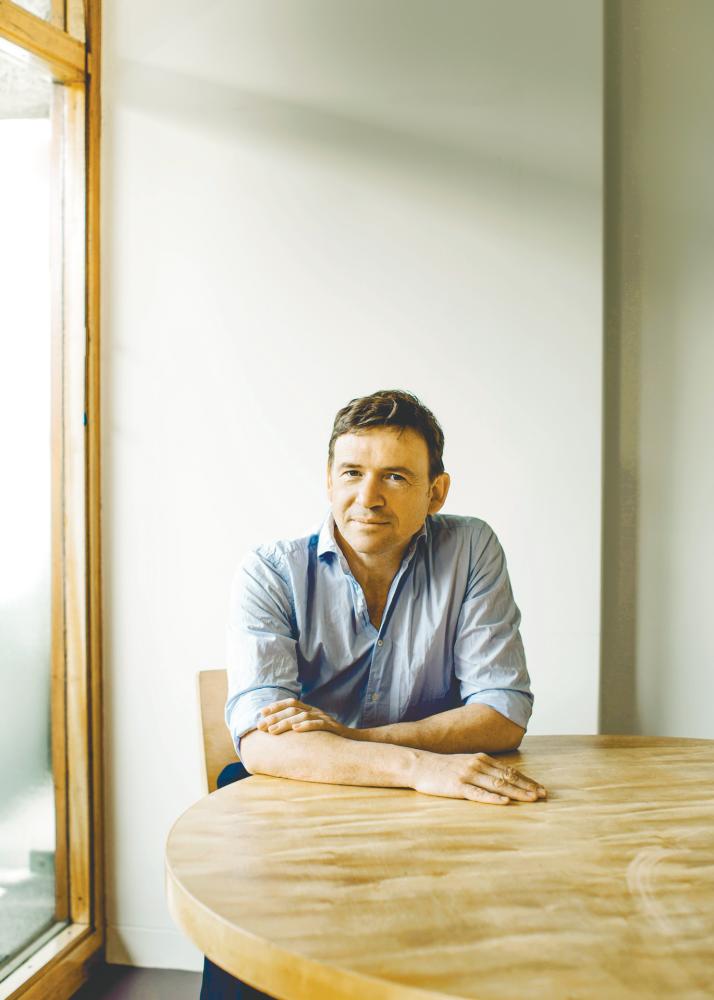ENGLISH novelist and screenwriter David Nicholls has enjoyed a long varied career, including acting stints in theatre productions.
As well as being an established screenplay writer whose credits include Simpatico, BBC’s Tess of the D’Urbervilles, Far from the Madding Crowd, and Patrick Melrose, Nicholls’ 2003 debut novel Starter For Ten put him on the literary map.
This was followed by The Understudy (2005) and One Day (2009) which became bestsellers in their own right. His fourth book, Us (2014), earned him the Specsavers National Book Awards’ UK author of the year as well as being long-listed for the 2014 Man Booker Prize.
During a tele-conference interview with Nicholls in London, the author (pix) was asked if he felt pressured to live up to the acclaim received by Us when writing his fifth and latest novel, Sweet Sorrow.
“I think writing with that in mind is a bit of a nightmare,” said Nicholls. “But I always wanted each book to be better than the book before. I always wanted to move on (from the previous book), come up with something new and prove my writing.
“I think the only thing you can hope for with any award or acclaim is to treat it as an unexpected bonus. I just do the best work that I possibly can.”
Sweet Sorrow revolves around 38-year-old Charlie Lewis who, despite being on the verge of tying the knot, finds that he can’t stop thinking about his first love Fran Fisher, whom he met as a 16-year-old.
Fran was then cast to play Juliet in a community theatre performance of William Shakespeare’s classic Romeo & Juliet. The young Charlie joined the troupe in order to spend time with her.
The older Charlie realises he can’t marry his current love until he gets over Fran. His past and present decisions form the crux of the story.
Nicholl has adapted some of his books (Starter For Ten and One Day) into screenplays. How does one decide what to keep and what to leave out of their ‘baby’?
“The truth is, it is very tricky, it is very painful. The main part of an adaptation is cutting and losing stuff. You have cut things you have slaved over, and passages that have a purpose (in the book) but don’t necessarily work on screen. You have to be extremely ruthless and that can be quite painful.
“Sometimes, you lack the objectivity to adapt things in a clear-headed way. You have all these parameters of time and budget that you don’t necessarily have when you are writing a book.
“I have to admit that it is not my favourite thing, but it is hard to give up control. It is a constant battle. That is why with Sweet Sorrow, I haven’t had any discussions (to turn it into a film) yet. I would like it to have a life primarily as a book first and see what happens.”

Like Sweet Sorrow, Nicholls’ The Understudy is set in the theatre world, but the author explained that is the only thing the two books have in common.
He said The Understudy is set in a more industrial type of theatre that puts on a show on West End every night for money whereas Sweet Sorrow was more about youthful passion.
“I wanted (Sweet Sorrow) to be very different, I wanted it to be about the amateur world and also adolescence. There is a particular intensity about being in that age and putting on a play. It is very emotional, very melodramatic, a lot of passions, a lot of crushes, a lot of feuds.
“It is very intense and funny for that very reason. There is where the comedy comes from. Everyone is very earnest and a bit pretentious.
“I thought the two stories were different enough to co-exist.”
Nicholls added that he enjoys writing about people who are not perfect. “For me, that is a much richer territory than writing about those who know what they are doing with their lives.”
He admitted to being envious of writers whose characters can reappear in subsequent books. “A part of me wishes I had that, and I know my publishers would like that too,” he said.
“But the nature of the stories I write are about relationships, or marriages, or adolescent romances, and they have to come to an end. It is hard to find that narrative of hooks to bring a reader back, book after book after book.
“So I think I am always going to write standalone books and for that reason, I suspect that I am not going to write that many. It takes some time to come up with a whole new world and a whole new cast. It doesn’t come so easily to me.”















